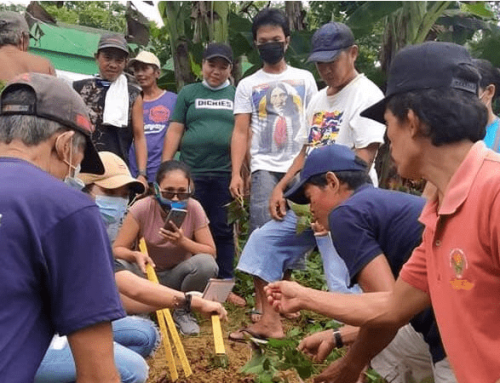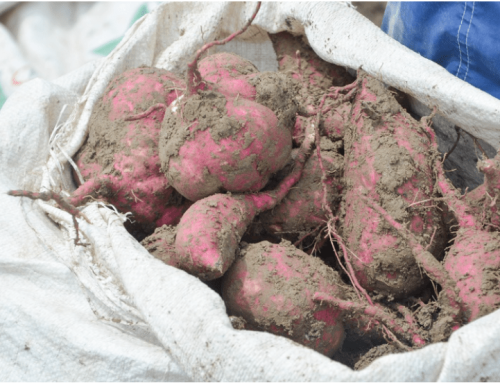In this Article

Then Leyte and Samar were devastated by super-typhoon Yolanda, which left agriculture in disarray. Developments in the aftermath of Yolanda brought sweetpotato as a significant crop intervention for food security, livelihoods, community resilience, and agriculture rehabilitation program in the coconut and rainfed areas. International and six local agencies (e.g., FAO, OXFAM, Red Cross, Catholic Relief Service, DTI, DA, LGUs) distributed sweetpotato planting materials in rehabilitation and recovery efforts. These were mainly supplied by PhilRootcrops-VSU from its own and cooperators’ production. Recovery and rehabilitation for livelihoods and other socio-economic objectives needed value chain assessments to create or improve value addition and benefit supply chain actors.
The proposed program’s goal was to enhance the sweetpotato value chains initiated in Tarlac and Albay; the targeted expansion areas; and the typhoon-affected regions in Leyte and Samar through a value chain development model. The enhanced sweetpotato value chains integrated the principles of Participatory Market Chain Approach (PMCA)/ MarketLink, which included facilities improvement, improved processing equipment for Good Manufacturing Practices (GMP) compliance and food safety, market research, and development while making the respective sweetpotato supply chains stable.








